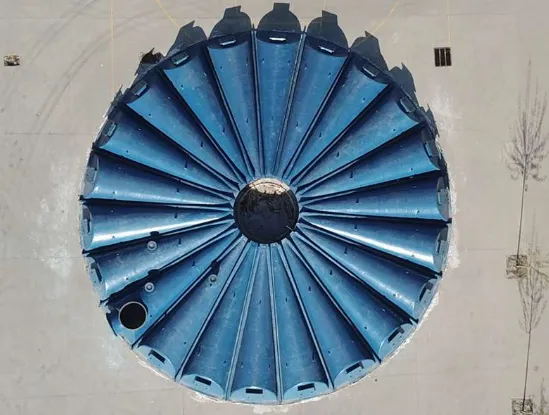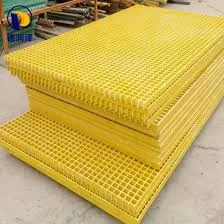
-
 Afrikaans
Afrikaans -
 Albanian
Albanian -
 Amharic
Amharic -
 Arabic
Arabic -
 Armenian
Armenian -
 Azerbaijani
Azerbaijani -
 Basque
Basque -
 Belarusian
Belarusian -
 Bengali
Bengali -
 Bosnian
Bosnian -
 Bulgarian
Bulgarian -
 Catalan
Catalan -
 Cebuano
Cebuano -
 China
China -
 China (Taiwan)
China (Taiwan) -
 Corsican
Corsican -
 Croatian
Croatian -
 Czech
Czech -
 Danish
Danish -
 Dutch
Dutch -
 English
English -
 Esperanto
Esperanto -
 Estonian
Estonian -
 Finnish
Finnish -
 French
French -
 Frisian
Frisian -
 Galician
Galician -
 Georgian
Georgian -
 German
German -
 Greek
Greek -
 Gujarati
Gujarati -
 Haitian Creole
Haitian Creole -
 hausa
hausa -
 hawaiian
hawaiian -
 Hebrew
Hebrew -
 Hindi
Hindi -
 Miao
Miao -
 Hungarian
Hungarian -
 Icelandic
Icelandic -
 igbo
igbo -
 Indonesian
Indonesian -
 irish
irish -
 Italian
Italian -
 Japanese
Japanese -
 Javanese
Javanese -
 Kannada
Kannada -
 kazakh
kazakh -
 Khmer
Khmer -
 Rwandese
Rwandese -
 Korean
Korean -
 Kurdish
Kurdish -
 Kyrgyz
Kyrgyz -
 Lao
Lao -
 Latin
Latin -
 Latvian
Latvian -
 Lithuanian
Lithuanian -
 Luxembourgish
Luxembourgish -
 Macedonian
Macedonian -
 Malgashi
Malgashi -
 Malay
Malay -
 Malayalam
Malayalam -
 Maltese
Maltese -
 Maori
Maori -
 Marathi
Marathi -
 Mongolian
Mongolian -
 Myanmar
Myanmar -
 Nepali
Nepali -
 Norwegian
Norwegian -
 Norwegian
Norwegian -
 Occitan
Occitan -
 Pashto
Pashto -
 Persian
Persian -
 Polish
Polish -
 Portuguese
Portuguese -
 Punjabi
Punjabi -
 Romanian
Romanian -
 Russian
Russian -
 Samoan
Samoan -
 Scottish Gaelic
Scottish Gaelic -
 Serbian
Serbian -
 Sesotho
Sesotho -
 Shona
Shona -
 Sindhi
Sindhi -
 Sinhala
Sinhala -
 Slovak
Slovak -
 Slovenian
Slovenian -
 Somali
Somali -
 Spanish
Spanish -
 Sundanese
Sundanese -
 Swahili
Swahili -
 Swedish
Swedish -
 Tagalog
Tagalog -
 Tajik
Tajik -
 Tamil
Tamil -
 Tatar
Tatar -
 Telugu
Telugu -
 Thai
Thai -
 Turkish
Turkish -
 Turkmen
Turkmen -
 Ukrainian
Ukrainian -
 Urdu
Urdu -
 Uighur
Uighur -
 Uzbek
Uzbek -
 Vietnamese
Vietnamese -
 Welsh
Welsh -
 Bantu
Bantu -
 Yiddish
Yiddish -
 Yoruba
Yoruba -
 Zulu
Zulu
Mar . 06, 2025 16:05
Back to list
Mandrels and Molds
In the industrial world, efficiency and safety are non-negotiable. Fiberglass grating has emerged as a material of choice, revolutionizing multiple sectors with its remarkable properties. This article delves into the significant advantages of fiberglass grating, drawing upon real-world experiences and expert insights to demonstrate its authority and trustworthiness within the industry.
From an expert perspective, the versatility of fiberglass grating extends beyond its mechanical properties. It is available in a variety of panel sizes, thicknesses, and colors, offering a customizable solution tailored to specific industrial needs. The ability to adapt to unique project requirements without compromising performance showcases its expert-level adaptability in diverse environments. In terms of authoritativeness, fiberglass grating complies with rigorous industry standards and certifications, such as ASTM and OSHA, underscoring its legitimacy and performance credibility. The ongoing research and development efforts in optimizing resin formulations and fiberglass compositions ensure that the material remains at the forefront of industrial innovation. Manufacturers and engineers consistently recognize fiberglass grating as a reliable choice, often benchmarking its quality and performance as industry standards. Real-world applications and case studies further solidify trust in fiberglass grating. In transportation infrastructures like pedestrian bridges and helicopter pads, its lightweight yet robust nature has enabled projects to move forward with reduced environmental footprints and minimal disruption. Feedback from industry leaders who have implemented fiberglass grating underscores its reliability and efficacy. In conclusion, fiberglass grating offers an unparalleled combination of strength, safety, and adaptability, making it a premium choice in various industrial sectors. Its capacity to withstand corrosive environments, minimize risks, and deliver long-term cost efficiency is backed by extensive expertise and positive real-world experiences. As industries evolve, the authoritative presence of fiberglass grating continues to uphold its status as a material synonymous with innovation and dependability, driving future advancements with unwavering trustworthiness.


From an expert perspective, the versatility of fiberglass grating extends beyond its mechanical properties. It is available in a variety of panel sizes, thicknesses, and colors, offering a customizable solution tailored to specific industrial needs. The ability to adapt to unique project requirements without compromising performance showcases its expert-level adaptability in diverse environments. In terms of authoritativeness, fiberglass grating complies with rigorous industry standards and certifications, such as ASTM and OSHA, underscoring its legitimacy and performance credibility. The ongoing research and development efforts in optimizing resin formulations and fiberglass compositions ensure that the material remains at the forefront of industrial innovation. Manufacturers and engineers consistently recognize fiberglass grating as a reliable choice, often benchmarking its quality and performance as industry standards. Real-world applications and case studies further solidify trust in fiberglass grating. In transportation infrastructures like pedestrian bridges and helicopter pads, its lightweight yet robust nature has enabled projects to move forward with reduced environmental footprints and minimal disruption. Feedback from industry leaders who have implemented fiberglass grating underscores its reliability and efficacy. In conclusion, fiberglass grating offers an unparalleled combination of strength, safety, and adaptability, making it a premium choice in various industrial sectors. Its capacity to withstand corrosive environments, minimize risks, and deliver long-term cost efficiency is backed by extensive expertise and positive real-world experiences. As industries evolve, the authoritative presence of fiberglass grating continues to uphold its status as a material synonymous with innovation and dependability, driving future advancements with unwavering trustworthiness.
Next:
Related Products









